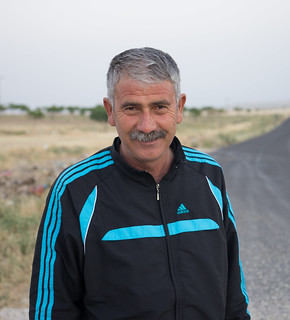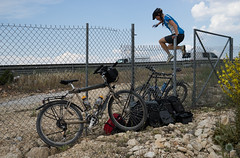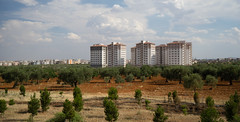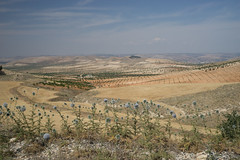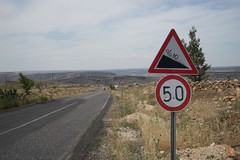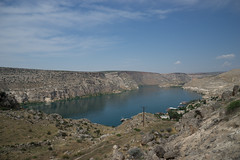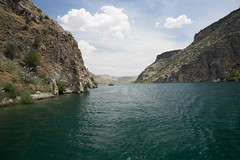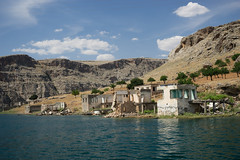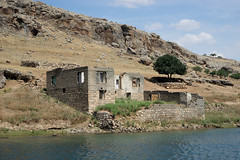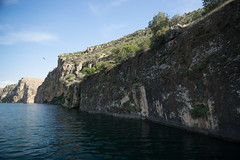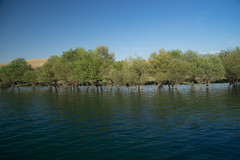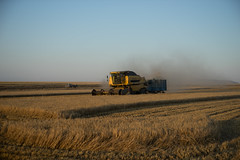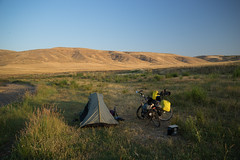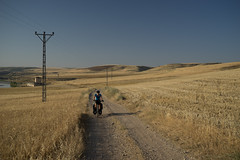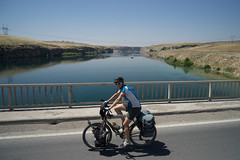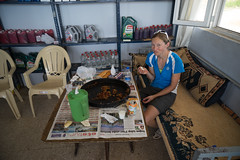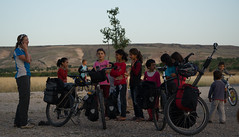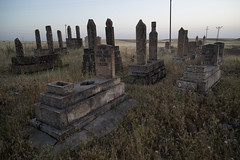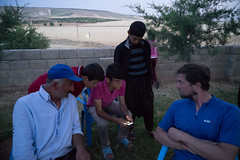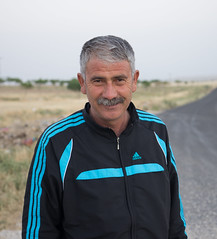Through Google translate and an extremely basic command of the Turkish language — as well as talking with English speakers — we have been asking people as we travel if the climate has changed where they live.
We’ve been surprised by how unanimous the response is: nearly everyone says that it is warmer than it once was. A man who works at a store near Kahramanmaras who is roughly our age (mid thirties) said that he used to play in the snow when he was a child, but now he can’t do so with his children. A woman who works at a school in a small town near Aksaray, whose husband works as a shepherd, agreed that the amount of snow today is much less than it used to be. People we meet at gas stations, where we often stop for food, also agree. When we ask more specifically about when it has gotten warmer, we’ve been able to make out that things have been changing over the last five to ten years. A good number of people also say that there is less rain, though it’s unclear if they are referring to the recent drought or a trend of many years.


Using Google Translate to Ask about Global Warming
When we ask why the weather has changed, we’ve also been surprised by how many people don’t know. According to a 2010 gallup poll, between a half and a quarter of Turks have never heard of climate change. Some, though, are quite aware. A wheat farmer in the Kurdish region, who we stayed with just a few nights ago, was one of the few people who, unprompted, used the term “global warming,” and who said it was caused by human pollution. He also said that warmer temperatures had made growing wheat much more difficult.
To figure out what weather stations in the region have actually recorded, I turned to a tool created by the University of East Anglia, where they show all the weather stations in the world that they use to calculate how the earth’s temperature has changed. I turned this Google Earth tool into an online map, shown below. Click on any of the points, and you’ll see the average temperature for that weather station for its entire period of record.
First, you’ll note that there isn’t data for many years (to see the average warming across weather stations, download the Google Earth tool and open it in Google Earth). Secondly, you’ll note that the majority of stations (and especially ones near our route) agree with what people have been saying: the past decade has been significantly warmer than previous decades.
Also, according to a 2010 study by David Lobell of Stanford University, Turkey is one of the countries whose wheat crop has been most affected by warming temperatures in the past 30 years — in a sense echoing exactly what the Kurdish farmer said.
I’m often skeptical of people’s abilities to perceive climate change, partially because I can’t easily remember what the weather was like ten years ago, and because I’ve read over a number of scientific papers showing how easily our belief in global warming is affected by last week’s weather (one cold month, and you often hear people doubting that climate change exists). Yet here in Turkey, it appears that the climate is getting warmer, and that people are feeling it.







